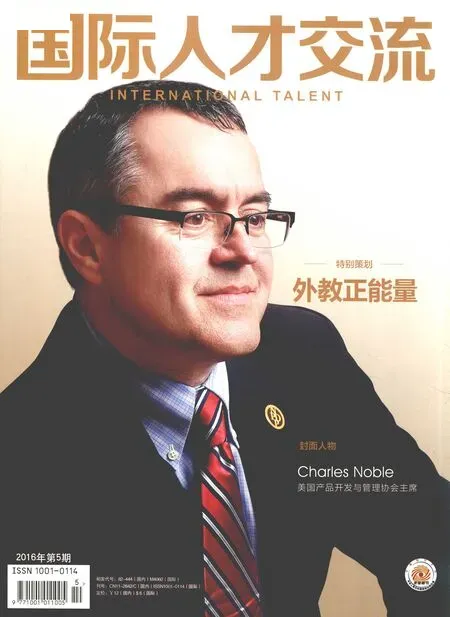我眼中的《西游记》
我眼中的《西游记》
“Journey to the West” Through My Eyes
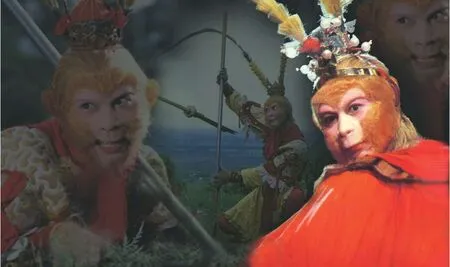
从第5期开始,“World Speaking”栏目的中文名称由原来的“国际朋友圈”,更名为“国际朋友说”。这一期,我们走出了《国际人才交流》编辑部,来到中央电视台脚下的媒体人咖啡馆。这也是本栏目首次对外公开举办,除了讨论嘉宾之外,现场有20余名观众参与其中。今年是猴年,《西游记》、孙悟空、六小龄童等都成为前一段时间大众讨论的热点,本期话题:“我眼中的《西游记》”,听听年轻的国际朋友们眼中的《西游记》是怎样的。
This time, we staged our World Speaking monthly meeting outside SAFEA, and transferred it to the Media Coffee right next to the CCTV Tower. Moreover, it is the first time we made it open to the public, and apart from the participants, we had the audience of more than 20 people. This year is the Year of the Monkey, so “Journey to the West”, Sun Wukong, Liu Xiao Ling Tong etc. became this year’s hot topics. In the present edition we will focus on how our young foreign friends view “Journey to the West”.
主持人(Hosts):吴星铎(Wu Xingduo)、 苏莉(Anastasia Sukhoretskaya)
嘉宾(Guests):米沙(Mikhail Chursin)、于嬿华(Filiz Unal)、胡凤兰(Victoria Khu)安阳(Amira Ahmed Elsayed)
走进西游
你是怎么知道《西游记》的?
米沙:我上大学之后才读了《西游记》的俄语版小说,之前对《西游记》并不了解。其实我小的时候非常喜欢神话故事,对这类书籍都爱不释
Embarking on “Journey to the West”
How did you know about “Journey to the West”?
Mikhail:After I became a university student, I got a chance to read the Russian edition of “Journey to the West”. I was completely unfamiliar with the book before. Frankly speaking, since childhood, I was so fond of fairytales. Now I regret that I didn’t discover “Journey to the West” earlier.手,我对《西游记》有点相见恨晚,真的希望自己能早一点读到这本小说。
于嬿华:我母亲是华人,小时候一到夏天我就来北京,可能是七八岁的时候,我第一次看了1986年版的《西游记》,那时打开电视就在播放这部电视剧,就断断续续地看。
安阳:我刚上大学的时候,我们的老师在文学课上介绍中国的四大名著,就是《三国演义》、《红楼梦》、《水浒传》、《西游记》,到了中国以后,我开始读这本小说,我读的是中文版原著,一边拿字典查不认识的字,一边读,我用了大约40天的时间读完了它。
胡凤兰:我是来自俄罗斯的华裔姑娘,我的家庭同时使用俄文、中文。《西游记》我没有看过小说版,电视剧真的是看了无数遍。记得当年一到春节,好像所有的电视台都在播《西游记》。动画片我也看过,我有两个妹妹,小妹妹现在9岁,她也非常喜欢《西游记》,很多故事情节她都能背下来,她经常拿着一个红色的围巾:“我是红孩儿!我来啦!”然后让我们当妖怪。
Filiz:My mother is Chinese, that’s why we used to come to Beijing every summer when I was kid. I watched 1986 version “Journey to the West”, when I was at the age of 7 or 8. I watched it miscellaneously, switching on TV from time to time.
Amira:At the beginning of my university studies, our teacher of literature introduced to us the Four Great Classical Novels of Chinese literature, which were “Romance of the Three Kingdoms”, “Dream of the Red Chamber”, “Water Margin” and “Journey to the West”. I started reading “Journey to the West” only after I had come to China. Because I was reading the original version in Chinese, I was half checking the dictionary, half trying to understand the book. It took me 40 days to finish the whole story.
Victoria:I am a Russian-born Chinese. In our family we speak both Russian and Chinese. I haven’t read the book, but I watched the series countless times. I still remember, during the Spring Festival, all channels screened“Journey to the West”. I watched the cartoon as well. Besides, I have two sisters. My youngest sister is 9 years old, and she is so fond of “Journey to the West”, that can retell some parts verbatim. She often says while waving a red kerchief: “I am the red boy Hong Haier! Here I come!” Then asks us to play the monsters’ part.
最喜欢《西游记》里的哪个人物?
米沙:《西游记》里的每个人物都是不一样的,就好像我们的社会。我最喜欢的人物,当然是美猴王,他通过自己的拼搏,能战胜各种困难。而且从男生的角度来说,我很喜欢里边孙悟空战斗的部分。
于嬿华:小时候我最喜欢孙悟空,现在最喜欢沙和尚。小时候喜欢孙悟空,是因为你想不到他用什么方法解决问题,每次看他都有一种很神奇的感觉,他叛逆、勇敢、有目标;现在更喜欢沙和尚,因为他朴实、善良、认真、不抱怨。虽然在四个角色里他戏份最少,但是我觉得他看着让人比较放心。
胡凤兰:我最喜欢的人物,是猪八戒。我在想,如果我找老公,我肯定找猪八戒这样的,虽然有些小缺点,比如贪吃,喜欢追女孩子,但是每次他追女孩子,最终都还是跟唐僧乖乖地走了,所以说,只要他的心落下来,就肯定会跟着这个人了。
Which character from “Journey to the West” do you like most?
Mikhail:Every character in “Journey to the West” is unique, and resonates with our society. Without doubt, the character I like most is Sun Wukong. He broke through all the hardship and succeeded. Also, born a man, I especially admire Sun Wukong’s fighting spirit.
Filiz:When I was a kid, I was fascinated by Sun Wukong, and now I am more into Sha Wujing. I liked Sun Wukong because his methods of dealing with hardship are unpredictable. Every time you watch him in action, he gives you that wonderful feeling. He is rebellious, courageous, goal-orientated. Now I like Sha Wujing for him being simple, kind, earnest and never complaining. Even though he doesn’t have much appearance in the book, compared to the other characters, but, to my personal thinking, he leaves you with peacefulness of mind.
Victoria:The character I like most is Zhu Bajie. If I were on the lookout for a husband, I would definitely choose someone like Zhu Bajie. Even though he is not without faults, for example, he is a bit of a glutton and likes chasing after girls, but if you take a closer look at him, you will see that every time he’s flirting with someone, he still prefers to follow Tang Sanzang. That gives me an impression that as soon as his heart settles down, he will stay with the person.
Brainstorm
Sun Wukong was able to travel the distance of one hundred and eight thousand li to reach Buddha, why then was everyone put into eighty-one challenges?
Filiz:Actually, I was not aware of how much distance they could cover in one leap, I learnt it just now. But, in my opinion, the most important thing is not destination but a journey. They learnt so many things and exercised their skills and abilities.
奇思妙想
孙悟空一个跟头十万八千里,能直接到佛祖那儿,为什么大家还要一路那么辛苦,经历九九八十一难?
于嬿华:其实我以前也不知道他一个跟头能翻那么远的距离,我也是刚知道。但是我觉得,其实重要的不是终点,而是过程。在这个过程中,他们可以学到很多,同时可以展示他们每个人的才能。
米沙:太容易得到的东西,人们往往不会太珍惜,历经苦难,才能学会珍惜。
女儿国的女王特别地爱慕唐僧,希望他留下来。如果你是唐僧的话,你是选择继续去取经,还是为了真挚的爱情留在那个地方?
于嬿华:我觉得如果有目标,就是那种挑战的心,不管成功不成功,我觉得尝试才是最重要的。如果我是唐僧,我会先去取经,取完经再回到女儿国。
胡凤兰:能到佛祖那里的人太多了,为什么要给他们?因为他们就是要通过各种磨难,这是安排好的。佛祖、菩萨其实一直在暗中保护着他们,肯定不会让别人把唐僧给吃了。而且,如果女儿国的国王万一是妖精怎么办呢?
米沙:选择爱情还是事业,这是一个两难的选择。应该考虑对你来说,哪一个更重要?如果是我,我会坚定地选择取经的事业,因为这会造福更多人。
Mikhail:What is easily obtained is not cherished. By overcoming hardship, only does a person learn to cherish.
Queen of Women’s Kingdom was so fond of Tang Sanzang, that she hoped he would stay with her. If you were Tang Sanzang, what would you choose: proceeding with the pilgrimage to obtain the holy Buddhist scriptures or stay in the Kingdom for the love’s sake?
Filiz:I believe, if someone has a goal and a fighting spirit, giving it a try is more important than stars at the end of the journey. If I were Tang Sanzang, I would get the scriptures first, and only then come back to the Women’s Kingdom.
Victoria:There are other people who can come to Buddha, why were the scriptures given to Tang Sanzang? Because they circumvented the obstacles, which was part of a plan. Buddha was secretly guarding them, and, certainly, would not let other people to hurt them. Moreover, what if the Queen of Women’s Kingdom turned out to be an evil spirit, what to do in that case?
Mikhail:What to choose, love or career, is not an easy question. I guess one has to decide what is more important for him personally. If it were for me to choose, I would opt for career, because that way I would make more people happy.
真假美猴王一节,唐僧、观音菩萨都分辨不出真假,只有如来佛自己知道谁是真的,有人大开脑洞说如来佛消灭了调皮捣蛋的真的孙悟空,而留下了听话的六耳猕猴保护唐僧取经。如果让你选,你会选择谁去取经?
胡凤兰:我觉得这个问题要嬿华先回答,因为你有双胞胎姐妹。
主持人:这是今天最妙的一个点。
于嬿华:我怎么知道那个听话的六耳猕猴有一天不会背叛我?孙悟空本来就有决心去取经的,我会选择孙悟空。
安阳:我会选择听话的六耳猕猴,因为原书说了,他们两个是一样强大的。我一定选听话的人,来实现我的安排。
米沙:我选择原来的孙悟空。因为听话的六耳猕猴有可能完不成这个任务,因为我们安排不了所有的
Is the Monkey King real or fake? Tang Sanzang, Bodhisattva Guanyin, all were not able to tell the difference. Only Buddha himself could do that. Someone says, Buddha eliminated the naughty real Sun Wukong, leaving obedient six-eared macaque to help Tang Sanzang safely get the scriptures. If it were for you to make a decision, what decision would that would be?
Victoria:I would rather address this question to Filiz first, as she has a twin sister (laughing).
Host:A good point!
Filiz:How would I know that this macaque would not let me down? Sun Wukong was so determined to get the scriptures. I would rather choose Sun Wukong.
Amira:I would choose the six-eared macaque, anyway, as mentioned, both of them are equally powerful. I would choose the obedient one, I need him to follow my personal plan.
Mikhail:I would pick the real Sun Wukong. Might be, the obedient macaque would not be able to fulfill the mission, because it is impossible to control everything. Why was Sun Wukong rebellious at times? Because he got his own opinion, his own ideas and beliefs that helped him to gain success.
Victoria:I think this question is a good one. Personally speaking, I would also go for the obedient one, because he would do what I said.
Host: And what we have here is two to two. Seems like Sun Wukong had every chance to be dismissed.
Culture Shock
How well is “Journey to the West” known in your country? How事情。为什么孙悟空有时候不听话?因为他有想法,有创意,有信心能做得到。
胡凤兰:我觉得这个问题特别好,从我的角度出发,我也会选择听话的那一个,来执行我的想法。
主持人:结果是二比二,看来孙悟空真有可能被消灭掉了。
米沙,哈萨克斯坦留学生,目前就读于北京语言大学国际政治专业
Mikhail Chursin, foreign student from Kazakhstan, now at Beijing Language and Culture University learning International Politics major
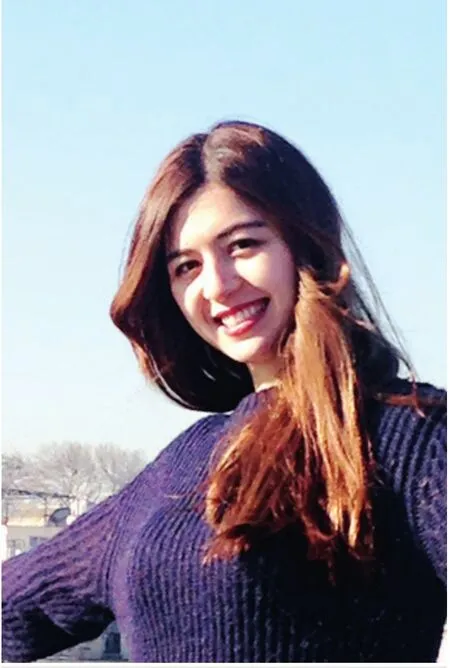
于嬿华,土耳其留学生,目前就读于北京大学对外汉语教育专业
Filiz Unal,foreign student from Turkey, now at Beijing University learning Teaching Chinese to Speakers of Other Languages
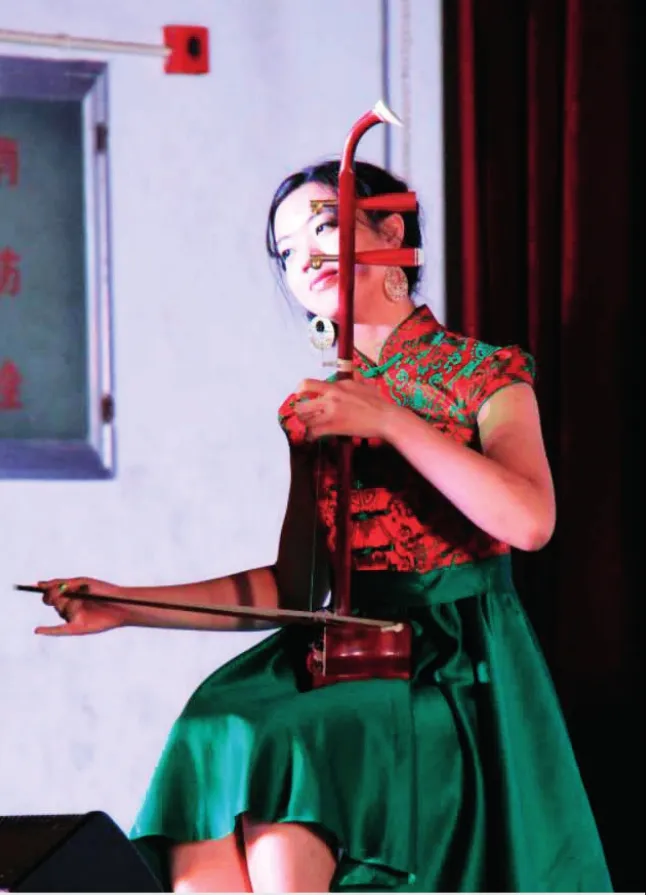
胡凤兰,来自俄罗斯的华裔姑娘,目前就读于北京语言大学国际文化交流专业
Victoria Khu, a Chinese girl from Russia. Now at Beijing Language and Culture University, major of International Culture and Communication.
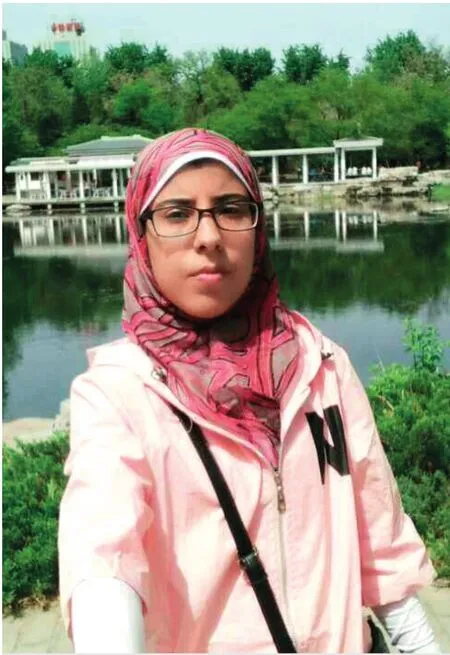
安阳,埃及留学生,目前在中国传媒大学学习汉语语言
Amira Ahmed Elsayed,from Egypt, now at Communication University of China studying Chinese language
文化碰撞
你们国家知道《西游记》、孙悟空的人多吗?你们国家的神话里有没有类似孙悟空的人物?谈谈你知道的外国的神话与《西游记》的对比。
many people have heard of Sun Wukong? Is there a personage like Sun Wukong in your culture? Share with us the folk and fairy tales characteristic of your country and compare them with “Journey to the West”.
Mikhail:In my country, those who actually know “Journey to the West”are not many. Mostly, only those who learn Chinese or China studies are familiar with “Journey to the West”. I don’t think in Kazakhstan we have something similar to “Journey to the West”. As a comparison, I would rather make an example of Tolkien’s “Lord of the Rings”. Gandalf from this book can be compared with Sun Wukong, because they both possess enormous abilities and can make magic, also both are smart and got incredible sense of humour.
Amira:In Egypt we have a similar story called “The travels of Ibn Battuta”. Ibn Battuta is a 14th century Muslim scholar and traveler, likes adventures, hungry for knowing the outside world. He started travelling at the age of 21. At first, he only wanted to visit Hajj. He never expected it to last for another 30 years. By that time, he had crossed almost all Islamic countries,
米沙:在我们国家,知道《西游记》的人并不多。只有学中文的、中国文学的人才知道《西游记》。好像在哈萨克斯坦并没有这样的神话,如果要比较一下,我觉得英国作家托尔金写的《魔戒》(The Lord of the Rings)可以和西游记媲美,甘道夫(Gandalf)可以跟孙悟空来相比,他们都非常厉害,会法术,非常聪明,而且都是非常幽默的人。
安阳:我要说一本在埃及流传比较广的类似《西游记》的小说,叫《伊本·巴图塔游记》。伊本·巴图塔是14 世纪的穆斯林学者和旅行家,喜欢冒险,渴望了解外面的世界,21岁时便踏上旅程。最初他想去麦加朝圣,却没想到这次旅行一直持续了将近30年。在那期间,他的足迹几乎踏遍了所有伊斯兰国家,并远至北非、西非、西方的南欧和东欧以及东方的中东、印度次大陆、中亚、东南亚和中国,行程远远超越了其前辈以及略早期的马可·波罗。我觉得巴图塔就像孙悟空一样,他有自己的目标,聪明、敢冒险,无论遇到什么困难,他都会想办法去解决。
于嬿华:我小时候经常换国家,大部分时间是在学语言的过程中长大的。我在日本的感受,神话我可能了解的不是很多,但是日本动漫比较有名。我觉得孙悟空和日本动漫里的柯南比较像,看人特别准,当然孙悟空是有火眼金睛的,柯南则主要靠分析,然后找出解决问题的办法。而在土耳其的伊斯兰教文化里,我们不说神话,而说神迹,就是一些先知做了什么,像是一种历史故事。比如在沙漠里,当时大家都特别需要水,一个先知就拿着杯子说:你们等一下,我会让这个杯子盛满水,然后杯子就突然自动装满水了。或者,一条大河挡在大家面前,先知说:我会让这条河从中间分开,然后河就真的分开了。
胡凤兰:我的感觉是中国的神话跟俄罗斯神话故事最大的区别在于,在中国的神话故事里,你要非常努力才能达到一个目标,证明中国人都很勤劳,很敬业,在俄罗斯的神话里呢,一变,什么就都有了,不需要努力。都很神奇。比如说普希金写的《渔夫和金鱼》的故事。他用诗的语言,让小孩子听着觉得很有意思,有神话的一些因素里面。但是大人一看,就知道没有天上掉馅饼的事情。reached such far-off places like North and West of Africa, Southern and Eastern European countries, Central-Eastern Asia, Central Asia, India, South-Eastern Asia and China. His travelling routs long surpassed those of Marco Polo, Ibn’s predecessor.
Ibn is “Journey to the West” ‘s Sun Wukong. He also knew his goals, was very savvy and adventurous. No matter what obstacles he might have come across along his travels, he was always able to find a solution.
Filiz: When I was little, we frequently changed countries. I grew up having to learn a number of languages. Frankly speaking, I am not very familiar with the Japanese folk tales, but Japanese cartoons are rather well-known. I believe Sun Wukong is a prototype for Japan’s Conan. They both see people very well. But, of course, Sun Wukong is more insightful. Conan comes up with a solution through a thorough analysis. More to add, in Turkish Islamic culture, we don’t call our folklore a fairytale. We call them stories of miracles, because in many of them the main character is a prophet, which makes them look more like the historical works. As an example, there is a story, where in the desert people were in an urgent need of water. One prophet took a glass and uttered: “Wait a little bit, and I will fill this glass with water!” And then, miraculously, the glass gets filled with water. Or a river, that laid out before the travelers. The prophet said he would make a pass right in the middle of the river. And again, with a touch of magic, the river gave way to the travelers.
Victoria:As for me, the biggest difference between Russian and Chinese fairytales is here: in the Chinese stories you have to work hard to achieve what you want which proves Chinese people to be a hard-working nation, very devoted to work. In Russia, it is that everything is miraculously provided so you don’t need to try so hard. For example, Pushkin’s “An old man and a golden fish” which is written in the form of a poem. This interesting style attracts kids’ attention, but when the adults come to reading the fairytale, it is clear to them that there is no such thing as a free lunch.
一句话结尾
米沙:《西游记》如现代社会。
于嬿华:四个人,其实就是我们。
安阳:《西游记》,中国神话。
胡凤兰:《西游记》,中华民族宝贵的文化遗产。(中文整理:吴星铎,英文整理:苏莉,实习生刘畅、张祚祺参与录音整理)
Summary:
Mikhail:“Journey to the West” reflects the modern society.
Filiz:Four characters, actually it’s us.
Amira:“Journey to the West”, Chinese fairytale.
Victoria:“Journey to the West”, Chinese people’s national cultural heritage. (Chinese version: Wu Xingduo; English version: Anastasia Sukhoretskaya; interns Liu Chang, Zhang Zuoqi responsible for recording decipherment).

